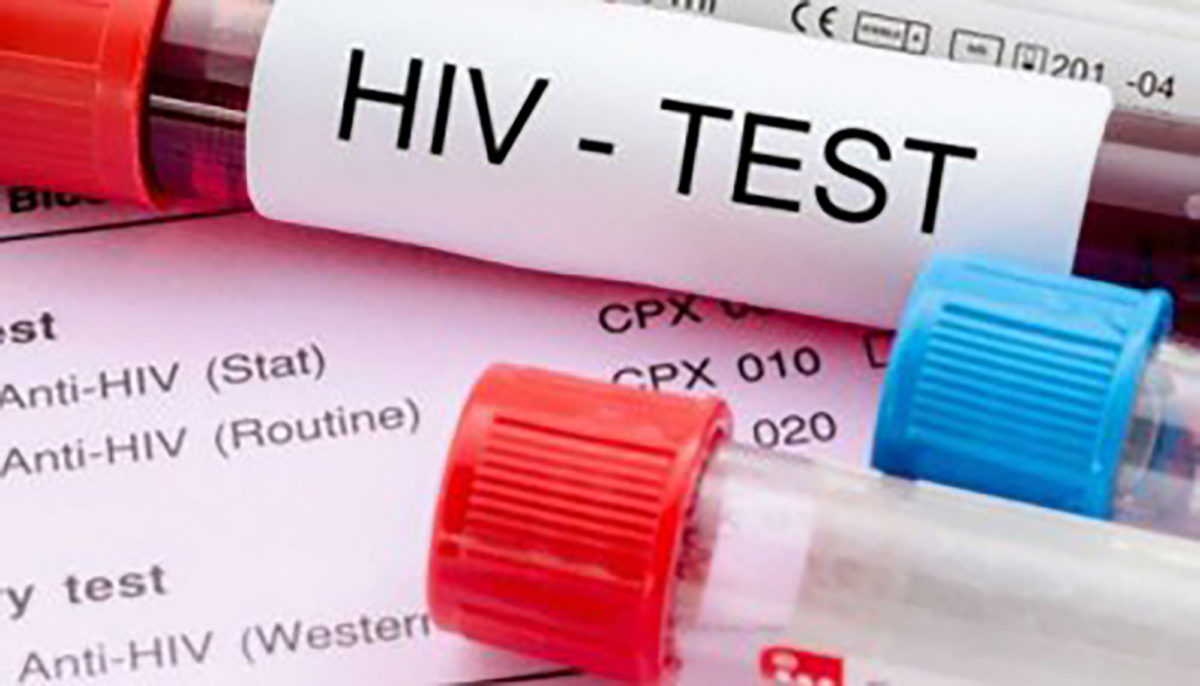AHF’s clinic provides lifesaving antiretroviral treatment (ART) to thousands in this hard-hit East African nation

Hundreds gather for free HIV testing at a 2012 AHF “Test & Treat” action held at a cobblestone construction site on the outskirts of Addis Ababa, Ethiopia
The East African country of Ethiopia has a past steeped in centuries of rich history, and a future that is made vulnerable by the prevalence of HIV/AIDS in its population. According to the Joint United Nations Programme on AIDS (UNAIDS), approximately 800,000 Ethiopians are living with the virus, 180,000 of whom are under the age of 14.
But since 2007, AIDS Healthcare Foundation (AHF), the largest global AIDS organization, has been working to provide lifesaving treatment to those already living with HIV/AIDS and simultaneously make important HIV testing and preventative measures like condoms easily accessible to the population. The Foundation partnered with another global nonprofit, the Worldwide Orphans Foundation (WWO), to operate its only Ethiopian clinic in Addis Ababa, which serves not only children who attend the WWO Academy in the country’s capital, but also adults from Addis Ababa and the neighboring sub-city of Yeka.
In addition to operating the Worldwide Orphans – AIDS Healthcare Foundation Family Health Clinic in the capital city, AHF Ethiopia also does targeted community outreach to ensure members of high-risk demographics can easily access HIV testing, antiretroviral treatment (ART), and a steady supply of condoms. One group of people facing a high risk for contracting HIV is cobblestone workers, to whom AHF Ethiopia reached out through two actions in 2012 – once from February to April, and again from November to December – at a cobblestone construction site on the outskirts of Addis Ababa.

Testing and outreach through a mobile testing unit at an exhibition marking the 125th anniversary of Addis Ababa during weeklong celebrations in November 2012
Over 15,000 workers were employed at this cobblestone construction site in 2012, many of them young people who have moved out of their families’ homes for the first time to seek income in a bigger city. These young people often do not have the preventative education to understand how to avoid getting and passing HIV, and with a multitude of commercial sex workers in Addis Ababa, there is a high risk for unprotected sex that could lead to transmission.
Furthermore, the transient lifestyle of cobblestone workers can lead to multiple partners, increasing the risk for both the workers and the women with whom they are engaging in intimate behavior. For those workers who do contract HIV, the transient lifestyle also makes receiving ongoing care at a stabilized, established clinic very difficult.
Through their testing actions at the construction site, AHF Ethiopia tested 14,625 individuals and distributed 17,015 condoms. The Foundation’s Ethiopian branch has enrolled 3,000 clients at the single clinic since 2007, of whom 1,885 are currently active clients. Of those active clients, 1,346 are currently receiving lifesaving ART from AHF.
“There is no treatment without testing. We cannot save the lives of millions of people right now, today, if we cannot get them screened and diagnosed,” said AHF Chief of Global Advocacy Terri Ford on the importance of testing actions around the world. “The inconsistency, inconvenience, and inefficiency of HIV testing worldwide must change, and we have declared war on the avoidable barriers to free, easy and fast HIV testing, especially for groups facing a high risk for HIV like the cobblestone construction workers in Ethiopia. It is a matter of life and death for millions.”
Another major event for the country in 2012 was the celebration of the 125th anniversary of Addis Ababa, which was marked for seven days in November from the 20 – 26 at the city’s main exhibition center. Dignitaries like the Addis Ababa Mayor Mr. Kuma Damekssa and First Lady of Ethiopia Mrs. Azeb Mesfin attended the weeklong exhibition, and AHF Ethiopia was one of the few organizations selected by the Addis Ababa City Administration to take part in the historic event.

Ethiopian First Lady Mrs. Azeb Mesfin arrives at AHF Ethipia’s presentation at the exhibition marking the 125th anniversary of Addis Ababa during weeklong celebrations in November 2012
In addition to displaying a photo exhibition and handing out informational brochures, AHF Ethiopia representatives gave presentations on the Foundation’s work fighting HIV/AIDS in Ethiopia through the clinic and outreach like the cobblestone site action.
For their efforts in the country and their presentation at the exhibition, WWO-AHF Ethiopia was presented with a bronze medal based on the assessment of all the non-government organizations (NGOs) participating in the exhibition by the selection committee. Additionally, the Addis Ababa City Administration presented the Foundation branch with a certificate for their successful participation in the event, where 327 people were tested and 338 condoms were distributed through a mobile testing unit brought to the exhibition site.



